#Life
My Best Ramadan – Four Stories Of Ramadans Past
Four Muslim brothers and sisters from different nations and communities relate the stories of their favorite Ramadans of the past.
Published

Four Muslim brothers and sisters from different nations and communities relate the stories of their favorite Ramadans of the past.
By Wael Abdelgawad, Jehan Hakim, Abdul Qadir Aba and Naeemah Damis-Salaam
Wael Abdelgawad: Staring at the Water in the Ditch
Keep supporting MuslimMatters for the sake of Allah
Alhamdulillah, we're at over 850 supporters. Help us get to 900 supporters this month. All it takes is a small gift from a reader like you to keep us going, for just $2 / month.
The Prophet (SAW) has taught us the best of deeds are those that done consistently, even if they are small. Click here to support MuslimMatters with a monthly donation of $2 per month. Set it and collect blessings from Allah (swt) for the khayr you're supporting without thinking about it.
Wael Abdelgawad is an Egyptian-American author, martial arts instructor, and founder of Zawaj.com. He lives in Fresno, California.
It’s hard to say which Ramadan was my best, but one of my first Ramadans that was truly memorable took place when I was 17 years old, and working in the orange groves in California’s Central Valley. It was the summer before my first year of college, and I’d been hired by an Egyptian Christian who owned a pest control company. My job was to hang sticky insect traps on the trees. Later I would collect the traps, and study them under a microscope to identify the types and density of insects present in the groves.
Summers in the valley are brutal, with temperatures routinely soaring above 110 Fahrenheit (43 Celsius). I spent hours every day in that roasting heat, trudging up and down endless rows of trees. My throat became as dry as dust, and all I could think about was water. The farms used ditch irrigation, and I would look down at the cool blue water running in the muddy ditch, and I wanted so much to fall to my hands and knees, scoop that water up in my hands, and drink it.
I had fasted many years before that, but that year was the first time I suffered for it. The first time it hurt to fast. The first time I had to draw deeply on my willpower. When it came time to break fast, that first sip of water was like the greatest blessing I’d ever been given. And when the month was over, I truly felt like I’d accomplished something important.
Jehan Hakim – Ramadan in Yemen
Jehan Hakim is a Bay Area native Yemeni-American, and a mother of four. She is a culturally responsive educator and community organizer.
Feeling the Ramadan spirit while living in California is not the most ideal location to thrive spiritually during the month of the Quran. Yes, my family and I have suhoor and iftar together (alhamdullilah), and we go to the masjid for taraweeh. But, it’s not always easy. School and work continue as usual, and so do the deadlines. Most of us have to wake up early, come home late, and function ‘normally’, while dehydrated and sleep deprived.
We also have to be extremely intentional about what we watch, listen to, how we spend our time, and how we speak, to ensure we are reaping the benefits of Ramadan, even while working or going to school with others who cannot relate to our experiences. It can feel isolating. As if you’re existing within your own world, until you get home, and you’re reunited with other Muslims.
I do remember a time when Ramadan felt less hard. Growing up, my family and I would take summer trips to Yemen. When I was sixteen, I stayed for over a year, and that was my favorite Ramadan experience.
Ramadan in Yemen was everything I needed. The school and work day started later (so you could sleep in!). The buzz in the streets didn’t start until noon, and the masajid broadcasted the adhaan and the prayers. And of course, all the food was halal.
A
s Maghreb time approached, the decorative string lights illuminated the streets and everyone, old and young, scattered home or to the masjid for iftar. The homes and masajid were filled with takbiraat and melodious Quranic recitations. After taraweeh prayers, the food courts and markets were alive. Families were sprinkled all across the aswaq (markets). The ‘night life’ was wholesome and halal, and didn’t slow down until suhoor time drew near. It was magical.
There was no need to shift my practices -whether it was salah or fasting- due to my environment, for salah and fasting was the environment! I didn’t have to write to my teacher or manager about how my schedule might be different due to my observance of Ramadan. The cultural homogeneity made it so easy to exist and lean into the Ramadan spirit mashaAllah. While I make the most out of the Ramadan experience living in a society that doesn’t center Muslim practices, I really miss Ramadan in Yemen!
Abdul Qadir Aba – Ramadan in a Manila Prison
Abdul Qadir Aba is a community organizer and educator in Manila. He writes here under an assumed name.
I was imprisoned at the age of only 19 years old for Islamic activism. Violence did not appeal to me, and I was not engaged in violence of any kind. I was a daa’i, a caller to Islam. I made Islamic street art on wall surfaces and distributed pamphlets at Quiapo market, which happens to be next to Quiapo church! Many even in the Muslim community told me that my activities were silly and dangerous, but I was committed. More significantly, I was a member of an organization that worked for the rights of indigenous communities in Mindanao, the Muslim-majority area of the Philippines. These people were fighting for their human rights and land rights against a brutal government.
Police came to my parents’ home and warned them that I had been “red-tagged” and should stop my activities. Red-tagging is a tactic used by the Filipino government, in which activists are labeled as communists and accused of being a part of the communist New People’s Army. Red-tagging is used against journalists, social activists, and opposition politicians. This is a very dangerous practice, as those who are red-tagged are sometimes tortured and extrajudicially killed.
Within six months I was arrested and sent to prison for two years. It could have been worse. I was given leniency, perhaps because of my youth. In the end, Allah’s 
When Ramadan arrived, it was very difficult. There was a strong group of believers in the prison, and we supported each other and kept each other safe. But the prison chaplain was Catholic, and stubbornly refused to make allowances for Muslim mealtimes (suhoor and iftar) in Ramadan.
Because breakfast was served after sunrise, we could not eat a morning meal. And because dinner was served before sunset, we could not eat the evening meal. In order to survive during Ramadan, we pooled resources. There were two Muslim brothers who worked in the kitchen. They smuggled meager amounts of food to the rest of us, mainly rice, powdered milk, and occasionally a few eggs. In addition, we bribed kitchen workers to save food for us.
We had to work our regular jobs, starting at 7 am every morning. Some of the brothers worked in labor-intensive jobs, such as janitorial, landscaping, or factory work. We lost a lot of weight, I can tell you that.
But the hardship is not what I remember most. What sticks with me is the way the Muslim brothers supported each other materially and emotionally. It was the tightest-knit community I have seen. I never felt alone. I felt that along with the others, I was engaged in something powerful and special. By the end of Ramadan I was nearly dizzy with hunger and delirium, but I felt as strong as a lion, and deeply connected to Allah 
I continue to work for the rights of indigenous peoples, though now I do so online, under a different name. I do not regret the activities of my youth, nor the time in prison. My predominant emotion regarding that time is gratitude for the two Ramadans I spent there, and the lessons I learned. I will always share a bond with those brothers, and will always remember them.
Naeemah Damis-Salaam – Is This For Us?
Naeemah Damis-Salaam has been a Muslim community leader and businesswoman in Los Angeles and Fresno, California for decades. She and her husband Abdul Karim Damis-Salaam founded Masjid Al-Aqabah in Fresno.
Alhamdulillah, by the mercy of Allah 
They came to the front room and stopped, looked, and their eyes was wide with wonder, lol. We each had 9 kids at the table! My kids walked past them and sat down to eat, looking at them, wondering, and asking, “Why don’t they come eat?” Amina’s kids said, “Are we having company? Who’s this for?” I’m still bringing food to the maaida (the table) and asking my kids is there anything else they need.
Amina kids all ran to me and gave me hugs and said, “Auntie is this for us?!”
I said, “Of course it is baby, you’re fasting and it’s my job to see to it you have a good one, Allah 
They ran to sit down and polished off grits, eggs, smothered potatoes, pancakes, halal sausages and bacon, toast, and bagels with cream cheese. Left the dates, lol. We made salat and I cleaned up. They said, “We don’t have to clean up?” I told them, “Not for suhur.” Got me another wonderful hug!
When they saw this is our Ramadan, my husband Abdul Karim got them up every morning, I made sure suhur was on the table by the mercy of Allah 
They and their friends still talk about their best Ramadan was when Auntie and Uncle come to visit. They enjoyed the taleems and the food.
When Siddiq, the youngest at 4 years old asked Auntie where all the good food come from?
I said, “From Allah 

Siddiq said, “I’m going to make dua’ all the time, right Wali?”
Alhamdulillah, your namesake (brother Wael Abdelgawad), my own Wa’el, who I call Wali, and was the same age as Siddiq, said, “You ask a lot of questions, Diq. I just eat.”
More About Naeemah Damis-Salaam
This biography was sent in by sister Naeemah’s son, Musad:
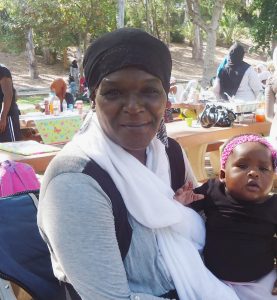
It took her family another 16 years to accept that she wasn’t going back to Christianity. She never second-guessed her decision, even through all the adversity, name-calling, and pain of being different in a small town. She eventually met and married her first Muslim husband, Abdus-Salam, who had a daughter named Zakiyah, and they moved to California.
Along the way, Naeemah was in a car accident that broke both her ankles and left her hospitalized in Tucson, Arizona for three months. At the same time, she found out she was expecting her first child! By the time she arrived in Watts, California, she had two more children, Aishah Abdus-Salaam and Jamilah Abdus-Salaam. During that time she became a single mother for three years, and got a job as an administrative secretary for Nicolson Gardens in Los Angeles, where she created on-the-job programs for the constituents of low-income families in the projects of Nicholson Gardens, teaching young women how to dress, walk, talk and act in order to get and keep employment. She was responsible for auditing the budgets for the projects to keep and increase grants for community services.
Naeemah was a member of Masjid Mumin in Los Angeles when it was just a house on Broadway Street, before the new building was bought and the masjid moved to St Andrew’s Place. There she met, was courted by, and married Brother Abdul Karim Damis-Salaam at Masjid Mumin on May 29, 1981. She helped him and Brother Sunni with the vegetable market established on the side of the masjid selling vegetables to the community on Fridays.
At the end of that year, the family moved to a 40 acre farm in Indio, CA where they bought and raised cattle. Their first son Musad Abdul Karim was born and delivered by her husband; there’s a story there for another time.
The family eventually made their way to a town called Goshen, in California’s Central Valley, where they raised chickens, goats, lambs, ducks, and an attack turkey. Naeemah tended the farm and children while her husband completed his master’s degree at Fresno State University. During that time her husband taught at Goshen Elementary. They met so many wonderful Muslims from Tulare, Visalia, Oakhurst, Squaw Valley, Hanford, Reedley, and surrounding cities.
In 1989 tragedy struck twice. Naeemah lost a son 4 months in the womb in January. Not long after, the house caught fire, and they lost Zakiyah (the eldest child) at the age of 12. In the chaos of the fire, unknown to the parents, Zakiyah ran back into the burning house to see if the baby of a family that was staying with them had gotten out. She never came out.
Naeemah was expecting their 10th child at that time, and the family was temporarily homeless. Through all this, her litany was, “From Allah we come, To Allah we shall return.” And, “Allah will not put a burden on us greater than we can bear!”
They moved to nearby Fresno, CA, and became members of the Shaw Avenue Masjid when it was a small house, before the community built the beautiful, prosperous masjid that now stands on the same property.
Her husband told her one day, “We must have a Masjid on the West Side (a predominantly African-American area of Fresno) to help those in need and tell people about Islam.”
Naeemah remembers answering, “Husband! We are in need. But whatever you want to do, I got your back.”
They began looking for a place to put a masjid in order to tell people in West Fresno about Islam and help families struggling to practice and care for their loved ones.
When her husband asked, “What shall we call the masjid?” She thought of girl names to the frustration of her husband, then became serious and said, “You know there will always be trials working with our people and others who want to come pray there.”
Abdul Karim looked at her and said, “The path that’s steep.”
Naeemah asked what that meant in Arabic and her husband said, “Masjid Al-Aqabah.”
For the first 5-7 years her husband paid the bills for the masjid. Together they opened Al-Jamiah Community Thrift Store, ran their businesses East West Fragrance, DS Goods Pallet Distribution, and the Baytul-Nisa Women’s Shelter. Naeemah created the programs, and filed all business and state documents needed, except for the 501c3, which she gladly handed to Imam Ali Umar. Meanwhile, she was the female chaplain for the women at Fresno County Jail, as well as cooking and feeding the homeless in front of the masjid on Fridays and for Eid.
Naeemah took a hiatus from her work on the Masjid Al-Aqabah board after the death of her husband Abdul Karim. However, she has now returned to the board due to the recent death of the masjid’s beloved Imam Ali Shabazz. She continues to help build and rebuild the masjid’s programs.
Related Posts:
Ramadan With A Newborn: Life Seasons, Ibaadah, And Intentionality
Keep supporting MuslimMatters for the sake of Allah
Alhamdulillah, we're at over 850 supporters. Help us get to 900 supporters this month. All it takes is a small gift from a reader like you to keep us going, for just $2 / month.
The Prophet (SAW) has taught us the best of deeds are those that done consistently, even if they are small. Click here to support MuslimMatters with a monthly donation of $2 per month. Set it and collect blessings from Allah (swt) for the khayr you're supporting without thinking about it.
Wael Abdelgawad's novels can be purchased at his author page at Amazon.com: Wael is an Egyptian-American living in California. He is the founder of several Islamic websites, including, Zawaj.com, IslamicAnswers.com and IslamicSunrays.com. He teaches martial arts, and loves Islamic books, science fiction, and ice cream. Learn more about him at WaelAbdelgawad.com. For a guide to all of Wael's online stories in chronological order, check out this handy Story Index.


When Love Hurts: What You Need to Know About Toxic Relationships | Night 11 with the Qur’an

I Can’t Stop Thinking About Someone | Night 10 with the Qur’an

Fifteen Years in the Shadows: The Strategic Brilliance of the Hijrah to Abyssinia

Ramadan As A Sanctuary For The Lonely Heart

Cultivating A Lifelong Habit Of Dua In Children

30 Nights with the Qur’an: A Ramadan Series for Muslim Teens

[Podcast] Guardians of the Tradition: Muslim Women & Islamic Education | Anse Tamara Gray

Who Am I Really? What Surat Al-‘Asr Teaches Muslim Teens About Identity | Night 1 with the Qur’an

Ramadan In The Quiet Moments: The Spiritual Power Of What We Don’t Do

Where Does Your Dollar Go? – How We Can Avoid Another Beydoun Controversy

I Can’t Stop Thinking About Someone | Night 10 with the Qur’an

When to Walk Away from Toxic Friends | Night 9 with the Qur’an

What Islam Actually Says About NonMuslim Friends | Night 8 with the Qur’an

Week 1 in Review: Is Your Teen Actually Changing? | Night 7 with the Qur’an

Why Your Teen Wants to Change Their Muslim Name | Night 6 with the Qur’an
MuslimMatters NewsLetter in Your Inbox
Sign up below to get started
Trending
-
#Islam2 weeks ago
30 Nights with the Qur’an: A Ramadan Series for Muslim Teens
-
#Current Affairs1 month ago
[Podcast] Should Muslims Ally with Conservatives or Progressives? | Imam Dawud Walid
-
#Life1 month ago
[Podcast] The Parts of Being an Imam They Don’t Warn You About | Sh Mohammad Elshinawy
-
#Islam1 month ago
How to Make this Ramadan Epic | Shaykh Muhammad Alshareef
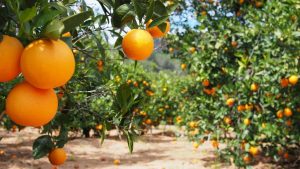
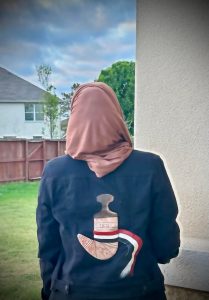
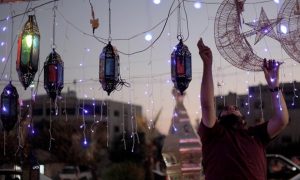
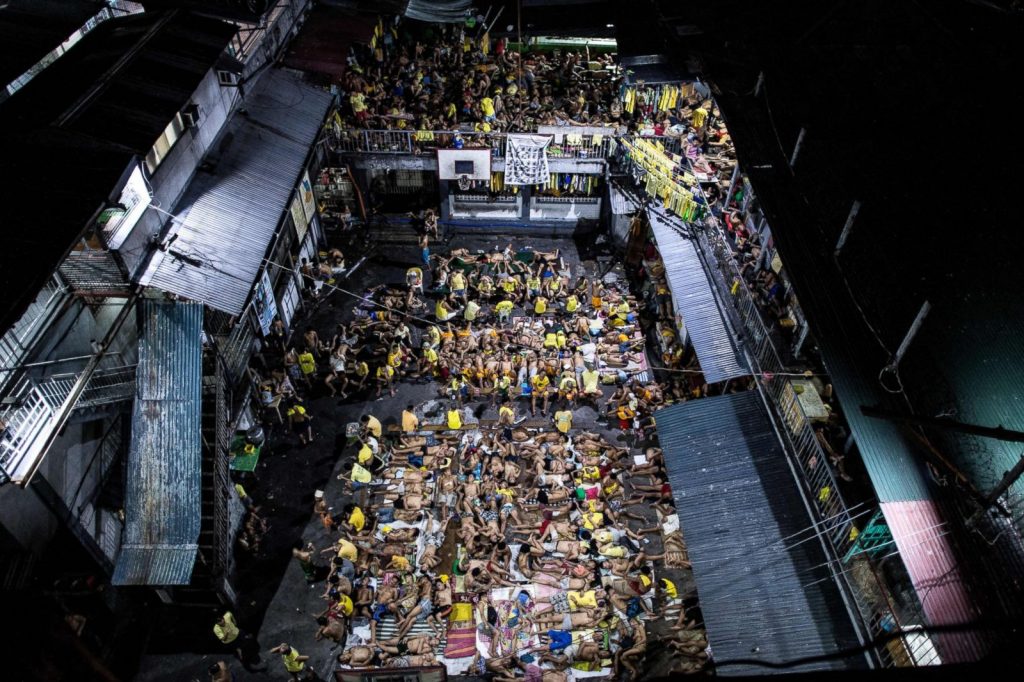
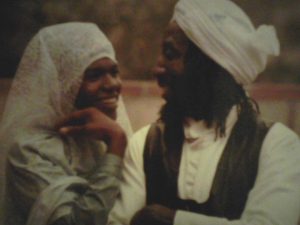










Shoaib
April 15, 2023 at 8:37 AM
Wow, what a powerful collection of accounts. I am struck by the diversity of all the settings. An orange grove, a Muslim majority country, a prison in the Philippines, a large loving family in California, all taking part in the same act of worship for the sake of the same God. As someone interested in history, I the last two stories most interested me, as they are primary historical accounts of a true Muslim hero and heroine.
Wael Abdelgawad
April 15, 2023 at 10:32 AM
I completely agree about the last two stories being the most inspirational.
Hebat Bakhach
April 15, 2023 at 8:46 AM
I loved reading this!!!!
Zainab bint Younus
April 15, 2023 at 8:42 PM
What powerful stories, subhanAllah. May Allah grant aunty Naeemah ease in this world and the Next for all that she has endured!
Wael Abdelgawad
April 15, 2023 at 8:47 PM
Ameen. I told her she should write a full length biography, but she says she’s too busy.
umm ismael
May 13, 2023 at 9:48 PM
Asslam u alaikum brother
waiting for you to resume your other pieces of writing….
Wael Abdelgawad
May 14, 2023 at 1:35 AM
Thanks Umm Ismael. I’m going through a period of personal difficulty in which I find it hard to write. My mother has been in the hospital. I have a daughter that I raise by myself. I’m not complaining, I am grateful to Allah for all that I have. But I do slip into depression sometimes and it’s difficult to focus.
Umm ismael
May 14, 2023 at 9:39 PM
Asslam u alaikum akhi
May Allah Create a way out for you through every difficulty. May He heal your mother completely ameen. And give you strength fortitude and wisdom to raise your child. May He increase all your material and spiritual provisions manifold ameen